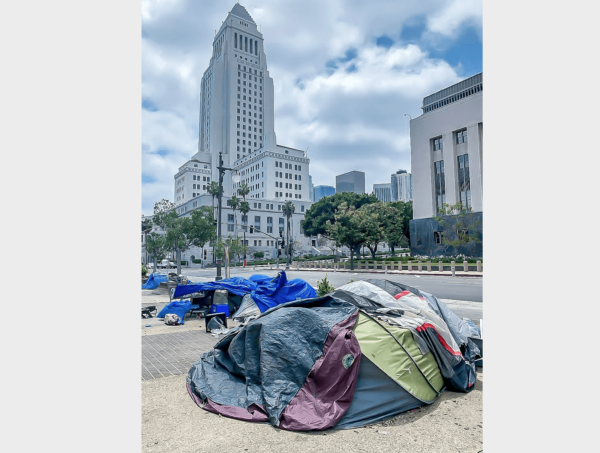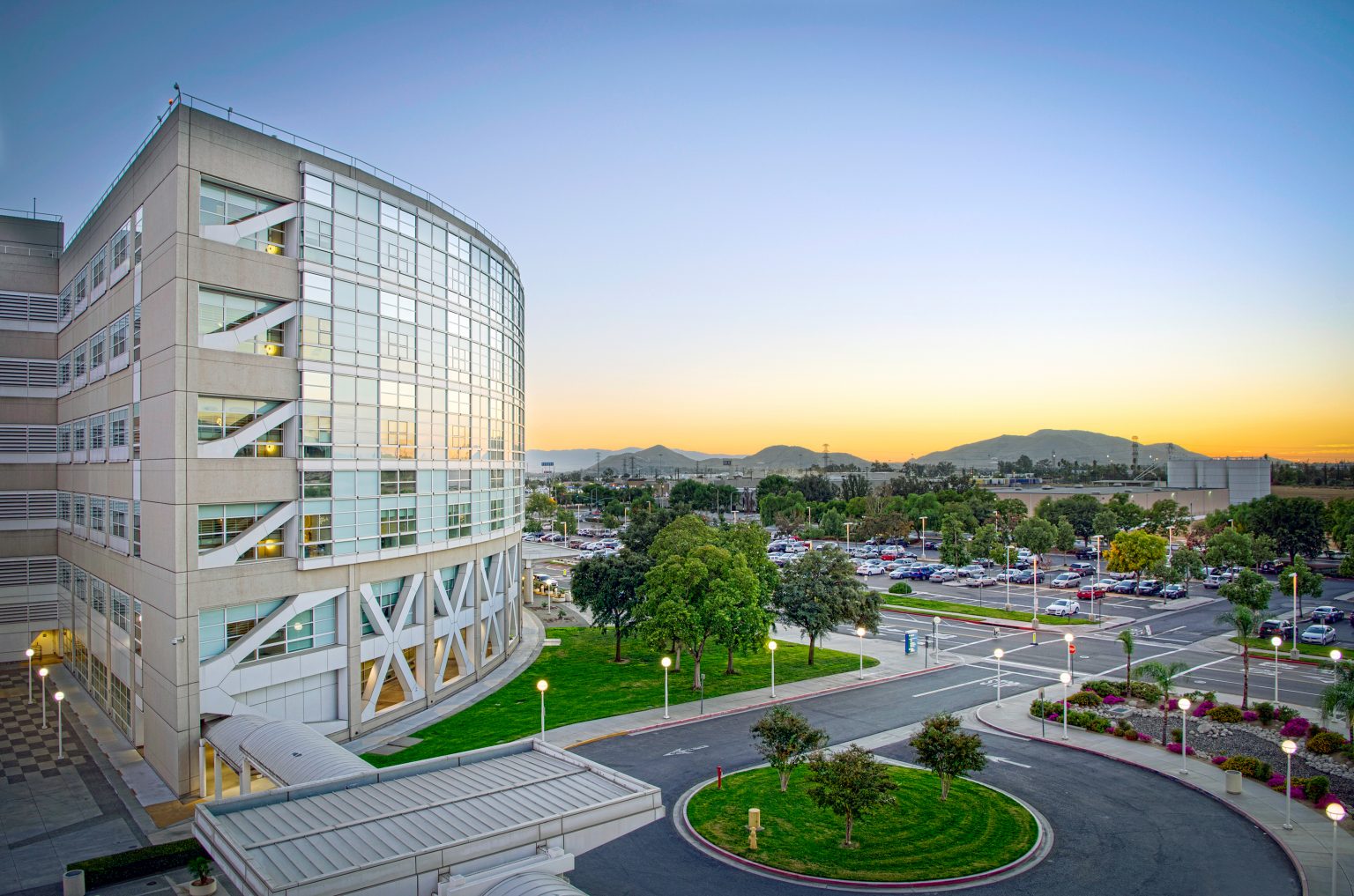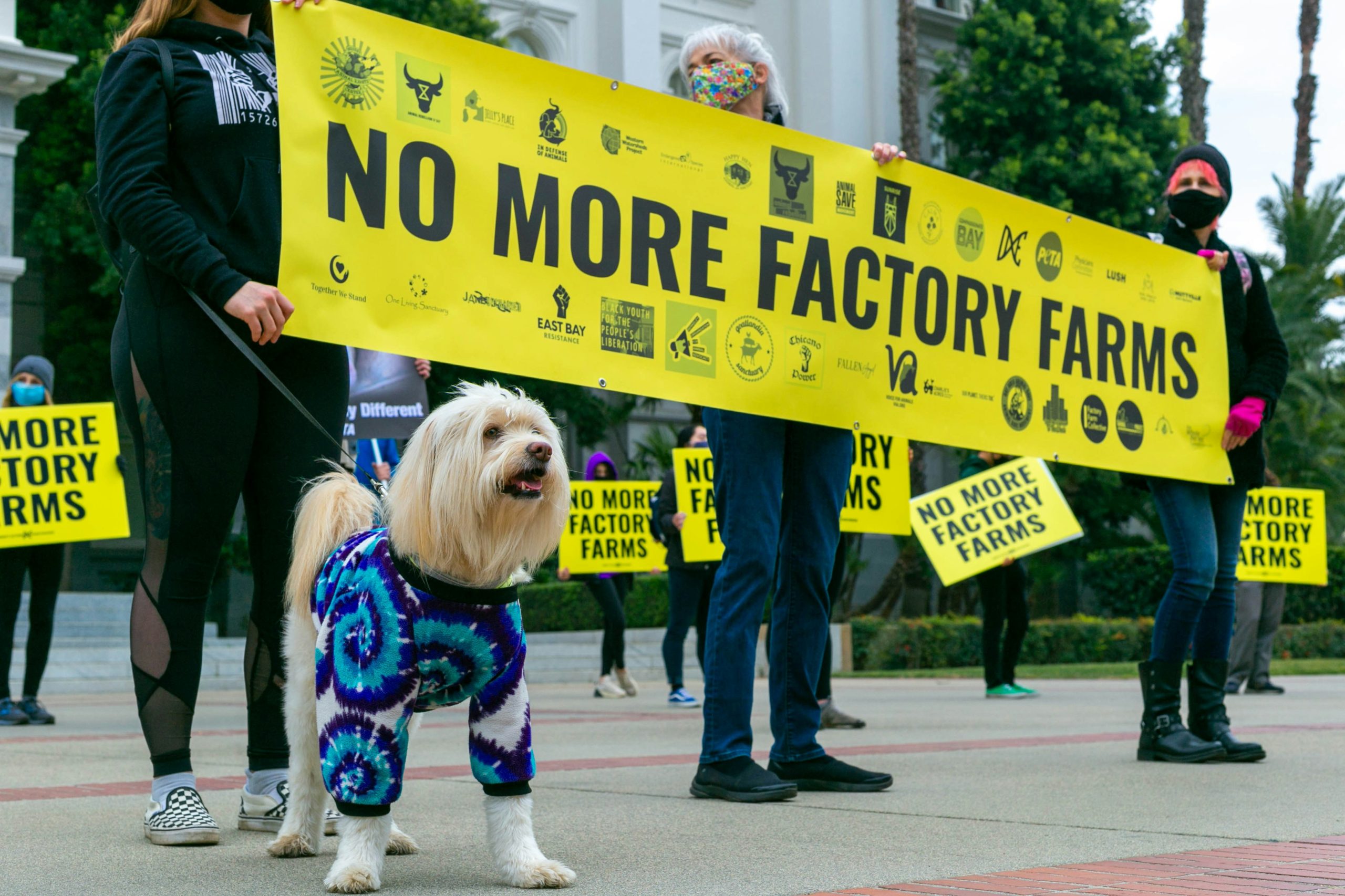An international human rights organization criticized Los Angeles city and county’s “criminalization” of homelessness in a report released Wednesday.
The 337-page report by Human Rights Watch accuses authorities of calling for more affordable housing but simultaneously treating homelessness as a crime as the main method of dealing with the crisis.
“Arrests and citations as the direct mode of criminalization have decreased substantially over the past several years in Los Angeles,” according to the report. “But authorities use the threat of arrest to support the relentless taking and destruction of unhoused people’s property through sanitation ‘sweeps’ and people’s removal from certain public spaces. Criminalization has simply taken a different primary form, though punitive criminal enforcement always looms.”
The report notes that in LA, “where the monetary value of property has risen to extreme heights while wages at the lower end of the economic spectrum have stagnated for decades, houselessness has exploded into public view. Policymakers addressing the issue publicly acknowledge the necessity of increased housing to solve houselessness, but their primary response on the ground has been criminalization of those without it.”
According to the report, the U.S. “has been treating housing primarily as a commodity” rather than an “internationally protected human right.”
The Los Angeles Homeless Services Authority issued a prepared statement in response to the report that said homelessness in LA County is a humanitarian crisis and that it is focused on moving away from criminalization.
“In partnership with the city and county of Los Angeles, we are already implementing culturally tailored encampment resolution efforts with promising results. We are encouraged by the reduction in unsheltered homelessness of 10.4% in the city and 5.1% in the county, noted in the region’s most recent Homeless Count,” LAHSA said in a statement. “Most importantly, these reductions corresponded with increases in sheltered homelessness and a record number of permanent housing placements, indicating that we are on the right track in adhering to a best practice approach.
“LAHSA also acknowledges and is committed to addressing the disproportionate representation of Black and Latino Angelenos impacted by homelessness. LAHSA is not involved when enforcement occurs to preserve the relationship-building efforts of the staff, which is a critical step to bringing people inside,” the statement continued.
These were some of the reports key findings:
- “Over 75,000 people are without housing in the county of Los Angeles, including over 46,000 in the city of Los Angeles, which is, according to the official one-day ‘Point in Time’ estimates for 2023, a 10 percent increase from the previous year. While only 1.1 percent of the overall US population, Los Angeles is home to 7.1 percent of the nation’s unhoused. Most unhoused people in Los Angeles live on the streets, in tents, or in vehicles rather than shelters or interim housing.
- “On average, over six unhoused people die every day in Los Angeles County.
- “Houselessness is caused by a lack of available affordable housing for people with little wealth and low income. Housing costs have increased dramatically in recent years, while working-class wages have stagnated. Over half a million renters in Los Angeles do not have access to affordable housing. The treatment of housing as a commodity, rather than as a right, results in this scarcity.
- “Almost 60 percent of renters and 38 percent of homeowners (over 720,000 households) in Los Angeles are ‘cost-burdened,’ meaning they pay over 30 percent of their income for housing, and over half of those are severely cost burdened, paying over 50 percent, while 270,000 Los Angeles households are overcrowded. People in these circumstances are precariously housed and at great risk of becoming unhoused.
- “Despite comprising less than 8 percent of the total population, Black people make up one third of Los Angeles’ unhoused people. The odds of a Black person in Los Angeles being unhoused are six times greater than that of a non-Hispanic white person. Historic and current racist structures have made houselessness extreme among Black people in Los Angeles.
The report also found that between 2016 and 2022, 38% of LAPD arrests and citations involved homeless people, including nearly 100% of citations and more than 42% of misdemeanor arrests.
“Criminalization effectively destroys lives and property based on race and economic class,” according to the report. “It is a set of policies that prioritizes the needs and values of the wealthy, property owners, and business elites, at the expense of the rights of people living in poverty to an adequate standard of living. As a consequence of historical and present policies and practices that discriminate against Black and other BIPOC people, these groups receive the brunt of criminalization.”
Hugh Esten, spokesman for LA City Council President Paul Krekorian, said Wednesday that while the councilman has not seen the report, Krekorian challenged the notion that the city is “criminalizing homelessness.”
“We do not prohibit camping on the streets of Los Angeles; we enforce restrictions on the time, place and manner of street camping to ensure public access to the public right of way, and to protect the safety of the housed and unhoused alike,” Esten said, according to published reports.
“Since 2020 we have built interim shelter and permanent supportive housing for those experiencing homelessness. As a result, over the last year we have seen more than a ten percent reduction in unsheltered homelessness in the city of Los Angeles,” Esten said.







